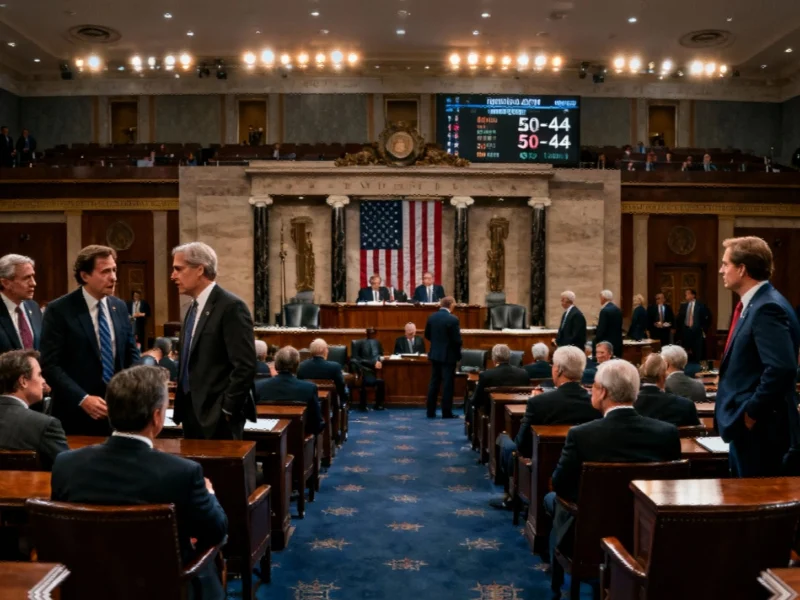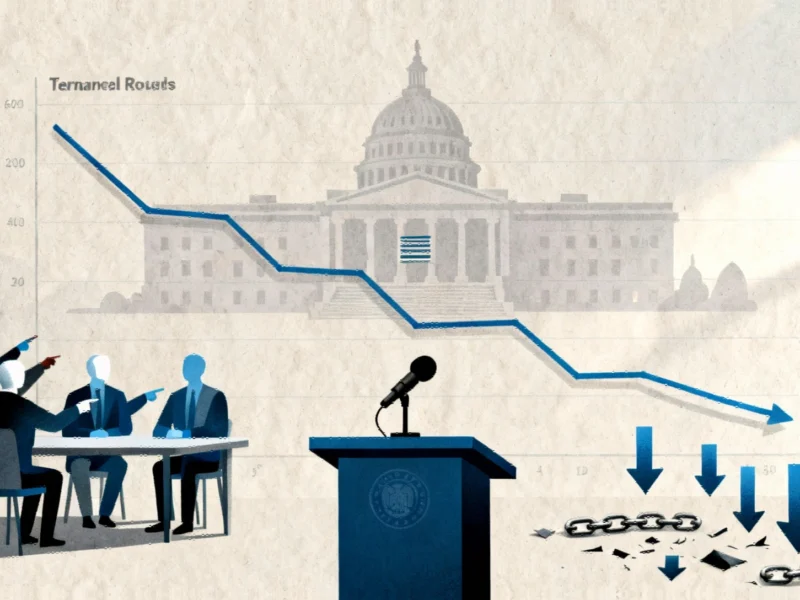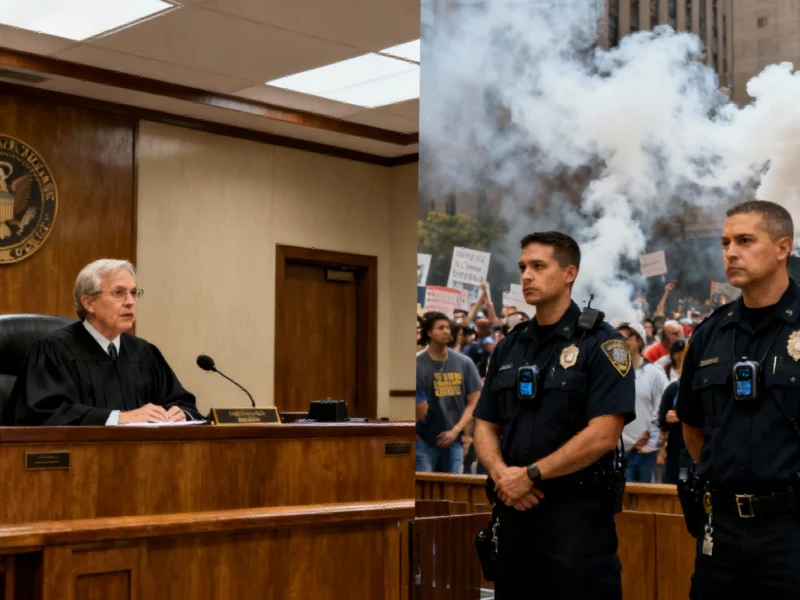Defense Bill Blocked Amid Ongoing Government Shutdown
In a significant legislative showdown, Senate Democrats have blocked a Republican-backed measure to fund the Pentagon for a full year, as the partial government shutdown extends into its 16th day. The vote, which fell largely along party lines, highlights the deepening political divide over how to end the funding impasse that has left numerous federal agencies shuttered since October 1st.
The $852 billion Defense Department appropriations bill failed to advance in the Senate with a 50-44 tally, short of the 60 votes required. This development comes as Senate Democrats block defense funding bill amid government shutdown stalemate, demonstrating their unified stance against piecemeal funding solutions. The blocked legislation represents one of several attempts to restart federal operations while broader negotiations continue.
Partisan Divide Over Funding Priorities
Democratic leadership made clear their position that military funding shouldn’t move forward without accompanying measures for domestic programs. “It’s always been unacceptable to Democrats to do the defense bill without other bills that have so many things that are important to the American people in terms of healthcare, in terms of housing, in terms of safety,” Senate Democratic Leader Chuck Schumer told reporters before the crucial vote.
Republicans countered that Democrats were engaging in political maneuvering. Senate Majority Leader John Thune accused the opposition party of withholding support for military funding to maintain “leverage” in shutdown negotiations. “This is politics,” Thune stated, suggesting Democrats were prioritizing political strategy over supporting U.S. troops.
Broader Implications and International Context
The funding stalemate occurs against a backdrop of global economic uncertainty, as G20 issues chair summary highlighting global economic challenges that could be exacerbated by prolonged U.S. political instability. The blocked defense bill also raises questions about how the shutdown might affect America’s military readiness and international commitments.
Meanwhile, in the technology sector, significant developments continue as MetaMask announces plans to pioneer prediction market integration, demonstrating how private sector innovation progresses even as government operations remain paralyzed.
Economic and Business Impact
The ongoing shutdown creates uncertainty across multiple sectors of the American economy. While defense contractors face potential payment delays, other industries continue to adapt to the political turmoil. The industrial sector shows particular resilience, with ABB chief expressing strong confidence in AI-driven industrial transformation despite the Washington gridlock.
Internationally, business development continues unaffected by U.S. political disputes, as evidenced by Tencent-backed Uzbek start-up Uzum considering London listing, showcasing how global markets adapt to American political uncertainty.
Healthcare Subsidies Remain Central to Negotiations
Democrats have emphasized that any comprehensive funding package must address expiring healthcare subsidies affecting approximately 24 million Americans. This requirement has become a non-negotiable element for Democratic support, creating a significant hurdle for Republican leadership seeking to end the shutdown.
The political calculus remains complicated despite Republican control of both congressional chambers and the White House. With only 53 Senate seats, Republicans need Democratic cooperation to reach the 60-vote threshold required for most legislation, giving Democrats substantial influence over the final outcome.
Military Pay Assurance Amid Funding Uncertainty
In a related development, President Trump signed an order Wednesday directing Acting Defense Secretary Pete Hegseth to ensure active-duty military personnel receive pay this week despite the funding lapse. This executive action provides temporary relief for service members but doesn’t address the broader funding questions affecting military operations and civilian defense employees.
The Defense Department appropriations bill had previously shown bipartisan support, passing out of committee earlier this year with a strong 26-3 vote. The current partisan divide reflects how shutdown politics have transformed previously consensus legislation into another battleground in the funding fight.
As the shutdown enters its third week, both parties remain entrenched in their positions, with no immediate resolution in sight. The blocked defense funding bill represents just one front in the broader battle over government spending priorities that continues to keep hundreds of thousands of federal employees furloughed and vital services suspended.
Based on reporting by {‘uri’: ‘reuters.com’, ‘dataType’: ‘news’, ‘title’: ‘Reuters’, ‘description’: ‘Reuters.co.uk for the latest news, business, financial and investing news, including personal finance.’, ‘location’: {‘type’: ‘place’, ‘geoNamesId’: ‘2643743’, ‘label’: {‘eng’: ‘London’}, ‘population’: 7556900, ‘lat’: 51.50853, ‘long’: -0.12574, ‘country’: {‘type’: ‘country’, ‘geoNamesId’: ‘2635167’, ‘label’: {‘eng’: ‘United Kingdom’}, ‘population’: 62348447, ‘lat’: 54.75844, ‘long’: -2.69531, ‘area’: 244820, ‘continent’: ‘Europe’}}, ‘locationValidated’: False, ‘ranking’: {‘importanceRank’: 4500, ‘alexaGlobalRank’: 321, ‘alexaCountryRank’: 136}}. This article aggregates information from publicly available sources. All trademarks and copyrights belong to their respective owners.



